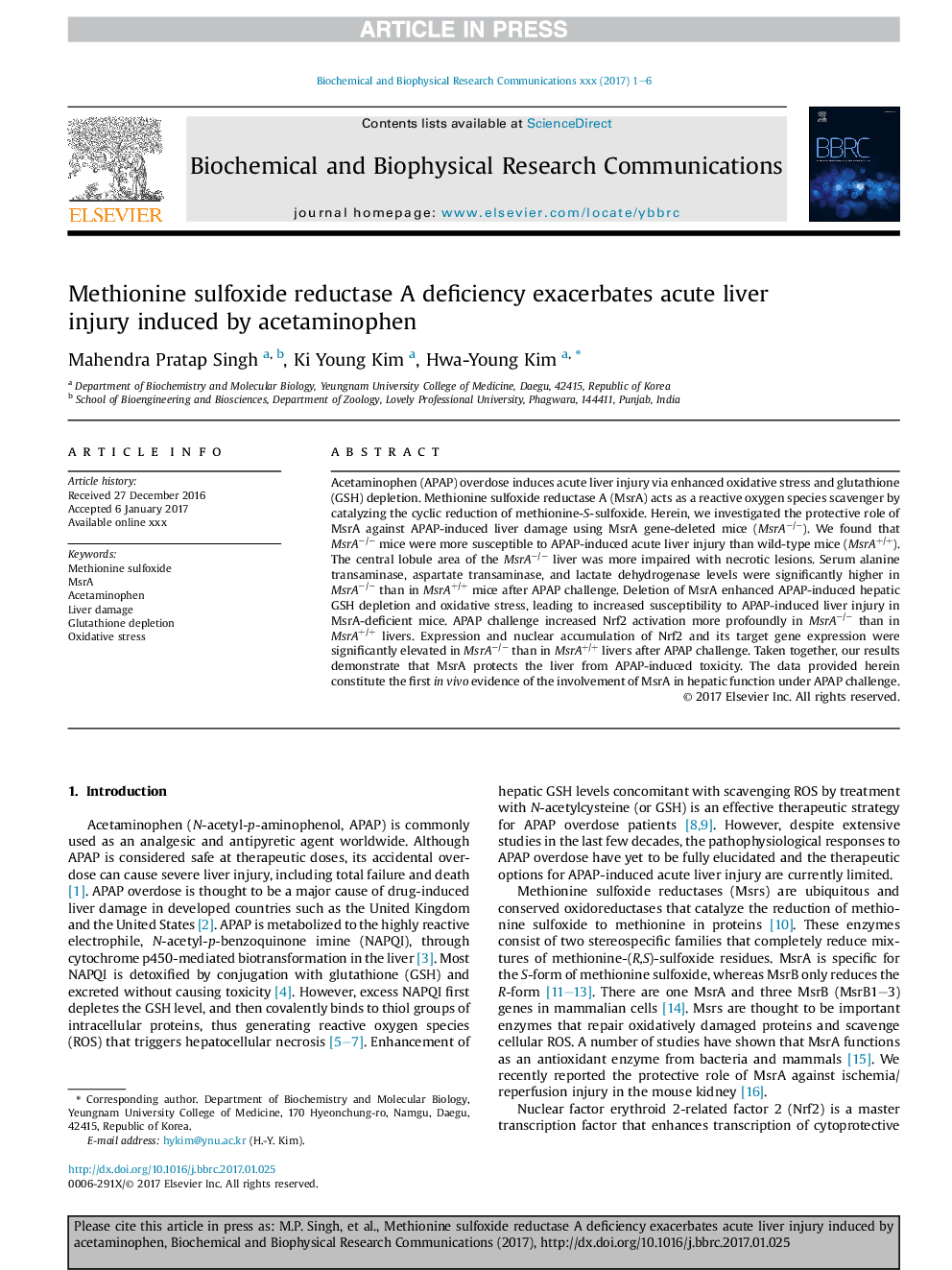| Article ID | Journal | Published Year | Pages | File Type |
|---|---|---|---|---|
| 5506388 | Biochemical and Biophysical Research Communications | 2017 | 6 Pages |
Abstract
Acetaminophen (APAP) overdose induces acute liver injury via enhanced oxidative stress and glutathione (GSH) depletion. Methionine sulfoxide reductase A (MsrA) acts as a reactive oxygen species scavenger by catalyzing the cyclic reduction of methionine-S-sulfoxide. Herein, we investigated the protective role of MsrA against APAP-induced liver damage using MsrA gene-deleted mice (MsrAâ/â). We found that MsrAâ/â mice were more susceptible to APAP-induced acute liver injury than wild-type mice (MsrA+/+). The central lobule area of the MsrAâ/â liver was more impaired with necrotic lesions. Serum alanine transaminase, aspartate transaminase, and lactate dehydrogenase levels were significantly higher in MsrAâ/â than in MsrA+/+ mice after APAP challenge. Deletion of MsrA enhanced APAP-induced hepatic GSH depletion and oxidative stress, leading to increased susceptibility to APAP-induced liver injury in MsrA-deficient mice. APAP challenge increased Nrf2 activation more profoundly in MsrAâ/â than in MsrA+/+ livers. Expression and nuclear accumulation of Nrf2 and its target gene expression were significantly elevated in MsrAâ/â than in MsrA+/+ livers after APAP challenge. Taken together, our results demonstrate that MsrA protects the liver from APAP-induced toxicity. The data provided herein constitute the first in vivo evidence of the involvement of MsrA in hepatic function under APAP challenge.
Related Topics
Life Sciences
Biochemistry, Genetics and Molecular Biology
Biochemistry
Authors
Mahendra Pratap Singh, Ki Young Kim, Hwa-Young Kim,
